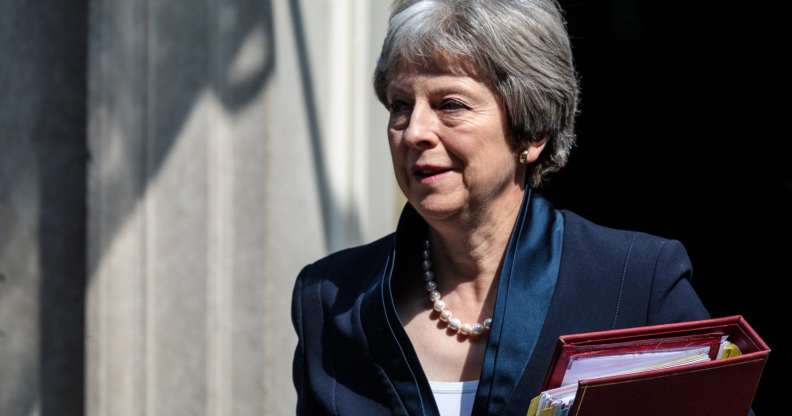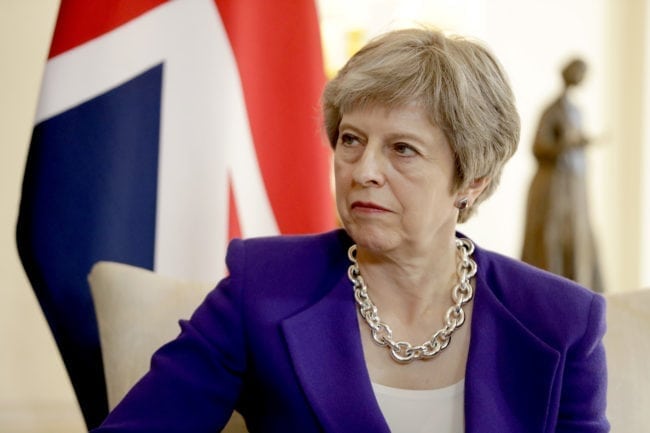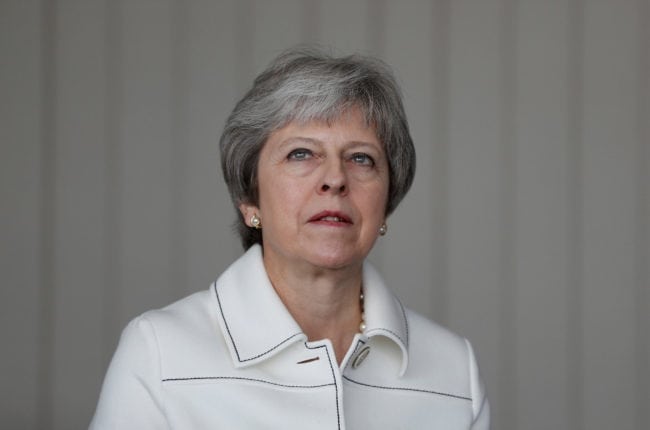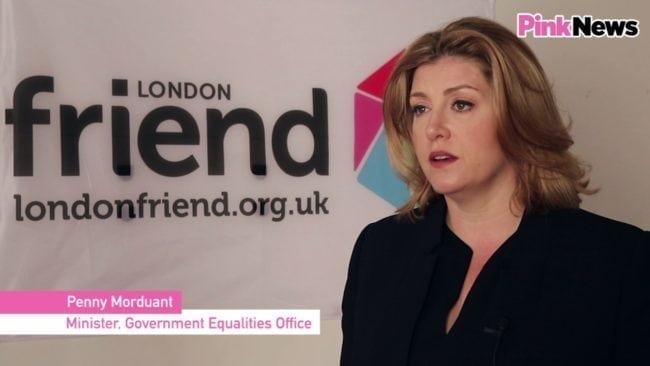Theresa May launches long-awaited transgender consultation despite anti-trans backlash

British Prime Minister Theresa May. (Jack Taylor/Getty )
The government has finally launched a much-anticipated consultation on gender recognition procedures for transgender people.
Prime Minister Theresa May announced a year ago that the government would seek to make changes to the 2004 Gender Recognition Act, to simplify the bureaucratic process for transgender people to change their legal gender on their birth certificate.
The consultation was originally set to launch in 2017, but has suffered from repeated delays amid strong backlash from some media commentators and self-identified radical feminist campaigners.
However it was finally launched today by equalities minister Penny Mordaunt, who also this week set out an LGBT Action Plan vowing to outlaw gay ‘cure’ therapy.

British Prime Minister Theresa May (Matt Dunham – WPA Pool/Getty)
The government cited the results of the national LGBT survey, which showed many trans people find the process of applying for a Gender Recognition Certificate “overly bureaucratic and expensive.”
The 16-week consultation, which affects England and Wales, will look at ways to reduce “the time and cost for people applying” for legal gender recognition.
The government is considering changes to current stipulations that require trans people to have their gender recognition signed off by doctors, obtain consent from their spouse, ‘prove’ they have lived in their chosen gender for two years, and pay £140.
Prime Minister Theresa May said: “Last year I committed to carrying out a consultation on the Gender Recognition Act and I’m pleased to be able to launch that today.
“What was very clear from our survey is that transgender people across the UK find the process of legally changing their gender overly bureaucratic and invasive.
“I want to see a process that is more streamlined and de-medicalised – because being trans should never be treated as an illness.”

Britain’s Prime Minister, Theresa May (Darren Staples – WPA Pool/Getty)
The consultation is available online here.
Minister for Women and Equalities Penny Mordaunt said: “The discrimination and bigotry that the trans community currently faces is unacceptable in today’s society – we need a culture change.
“In response to our national LGBT survey trans people have told us that the current system to legally change their gender isn’t working and they find the process bureaucratic, costly and intrusive.
“We want to help people to thrive and to go about their daily life, living in the gender they choose without intrusion or fear of humiliation.
“This consultation is a chance for us to change the current system for the better and I look forward to hearing everyone’s views.”

Penny Mordaunt (Amy Ashenden/PinkNews)
Responding to concerns from radical feminist groups, the government stressed that the reforms will not amend the Equality Act 2010, which already states that individuals must not be discriminated against because they are trans regardless of whether they have legal gender recognition.
The government emphasised that single-sex services such as domestic abuse refuges continue to have an opt-out.
Despite reports the government was likely to settle on a self-identification system of gender recognition as operates in Ireland, a release stressed: “The Government has not yet taken any decisions and responses to the consultation will be considered very carefully before making any.”
Trans campaigners welcomed the news.
Cara English, Policy Engagement Officer at trans charity Gendered Intelligence, said: “Gendered Intelligence welcomes the Government’s plans to make it less difficult to change legal gender.
“Meaningful reforms to the Gender Recognition Act are desperately needed if we’re going to make the process easier, less bureaucratic and exclusionary for trans and non-binary people.
“It’s encouraging to see the Government take the needs of LGBTQI people seriously, recognising that the GRA needs to be reformed to make it more transparent for those who need to access it.
“This consultation is all about highlighting the lived experiences and needs of people disenfranchised from the current GRA and giving value to their voices.”

